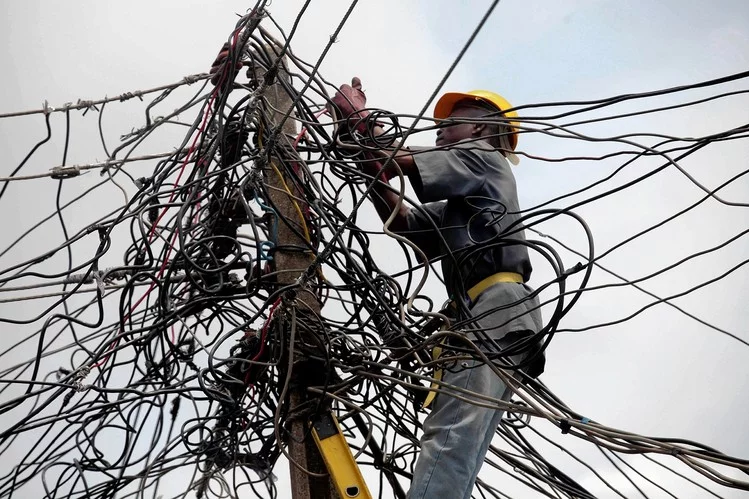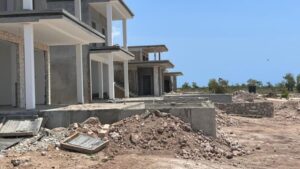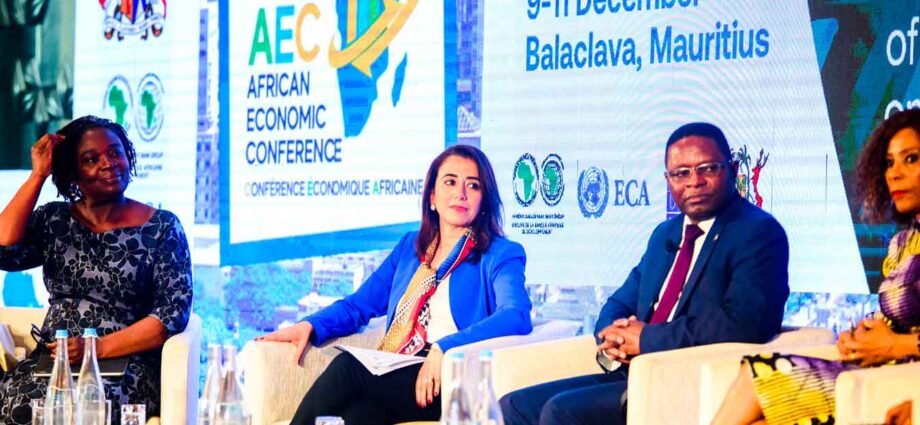As the world moves toward energy transition, it is important that Africa’s ongoing challenges with access to clean, affordable and inclusive energy be addressed for the continent to achieve a fair and just energy transition, panelists said during the 2022 African Economic Conference (AEC).
They made these points during a dialogue of development partners on Africa’s just energy transition on the sidelines of the AEC in Balaclava, Mauritius. The African Development Bank, the United Nations Economic Commission for Africa (ECA), and the United Nations Development Programme organized the three-day conference, which has the theme “Supporting Climate-Smart Development in Africa.”
Friday’s dialogue brought together representatives of public institutions, the private sector, and development partners to explore pathways to a just energy transition in Africa, offer recommendations, and forge partnerships to help member states develop strategies and implementation plans for energy transition.
“When we think about just energy transitions in Africa, we must consider the fact that the continent still has 600 million people who don’t have access to electricity… We need to underline that we are not talking about handouts – we’re talking about justice,” said Ahunna Eziakonwa, Director of the UNDP Regional Bureau for Africa.
She stressed that a just energy transition must consider environmental preservation and the impact of climate change on livelihoods.
Eziakonwa added: “Africa needs climate justice because fighting climate change is not just about emissions but also justice. We don’t need to preside over yet another extractive industry in this area where countries come to Africa, extract energy sources, cause environmental damage and leave the local population in the dark.”
Richard Munang, Africa Regional Climate Change Coordinator for the UN Environment Programme, called for justice, equity, inclusivity and competitive economic growth as Africa focuses on a just energy transition.
Munang said that youth in Africa should be involved in every aspect of the energy transition discussion because they are the continent’s strength. “The discussion around gas, carbon, should lead to opportunities for the millions of our rural women and the youth,” he added.
Hanan Morsy, Deputy Executive Secretary and Chief Economist of ECA, stressed the need to address the energy accessibility gap in Africa as part of the transition.
She said that mobilizing financial resources is also key to addressing energy inequities, adding, “We need blended finance, guarantees, and more equity investments to crowd in the private sector and multilateral development banks must play a bigger role in expanding the tools for the private sector.”
Kevin Urama, African Development Bank Acting Chief Economist and Vice President for Economic Governance and Knowledge Management, said Africa needs robust energy access that is clean and affordable before it begins to focus on a just energy transition.

He said: “We need energy before we start thinking about transitioning. Transition means going from one place to another; Africa cannot move from zero to zero. We must consider technology solutions that allow African economies to remain on carbon targets.”
Victoria Kwakwa, World Bank Regional Vice President for Eastern and Southern Africa, called for a fundamental shift in Africa’s approach to the energy transition. “Currently, efforts are piecemeal. We need to all come together and have a large-scale, longer-term engagement to determine how to achieve our aspirations,” she said.
She urged governments to show political will and create an enabling environment for the private sector.
“We need about $200 billion to get access to people who don’t have access. Public resources must be used efficiently. There is a lot Africa can do to get a lot done for itself,” Kwakwa said.
Africa’s energy systems face complex challenges. The continent hosts about 80% of the 733 million people in the world without access to electricity and 37% of the 2.4 billion people who lack access to clean cooking solutions.
Source: afdb.org
Share this news
This Year’s Most Read News Stories

Tanzanian insurance firms upbeat after first quarter business growth
Total gross written premiums for the insurance industry have increased by 13.68 percent in the first quarter of 2024, with small and medium-sized companies showing higher growthContinue Reading

British Investor’s $1.6 billion real estate project in Zanzibar lies in limbo
The revocation of British developer Pennyroyal’s leasehold for the construction of Blue Amber Resort by the Revolutionary Government of Zanzibar has sent shock waves in the nascent property market on the Isles.Continue Reading

Shock waves hit Zanzibar’s Real Estate industry
The revocation of British developer Pennyroyal’s leasehold for the construction of Blue Amber Resort by the Revolutionary Government of Zanzibar has sent shock waves in the nascent property market on the Isles.Continue Reading











